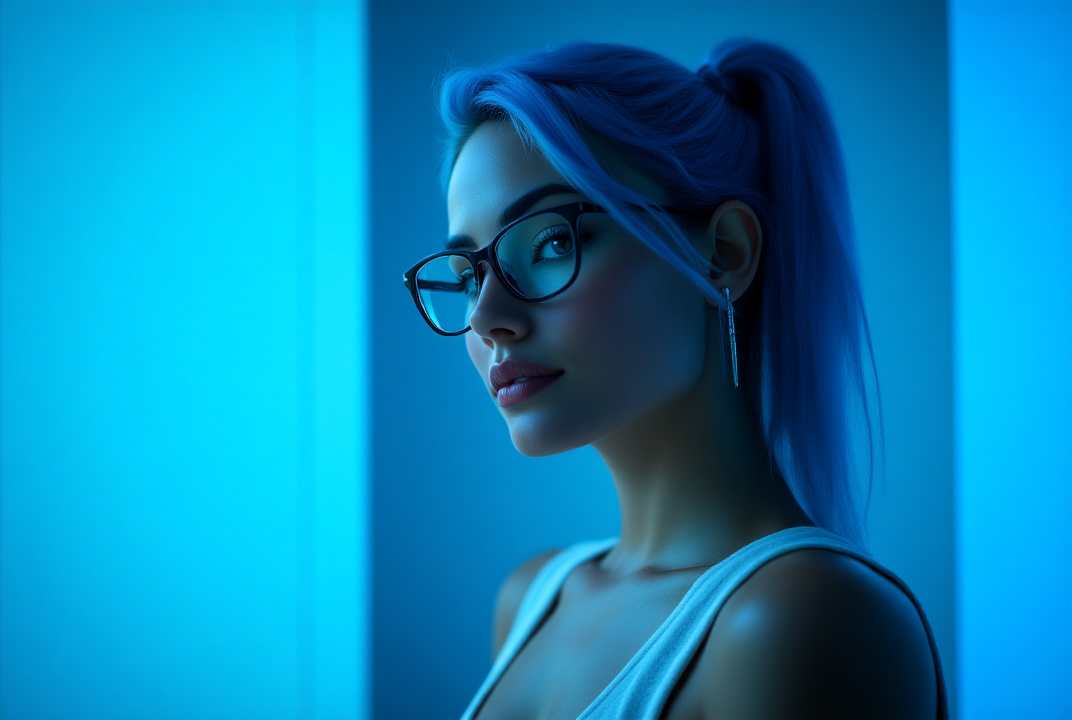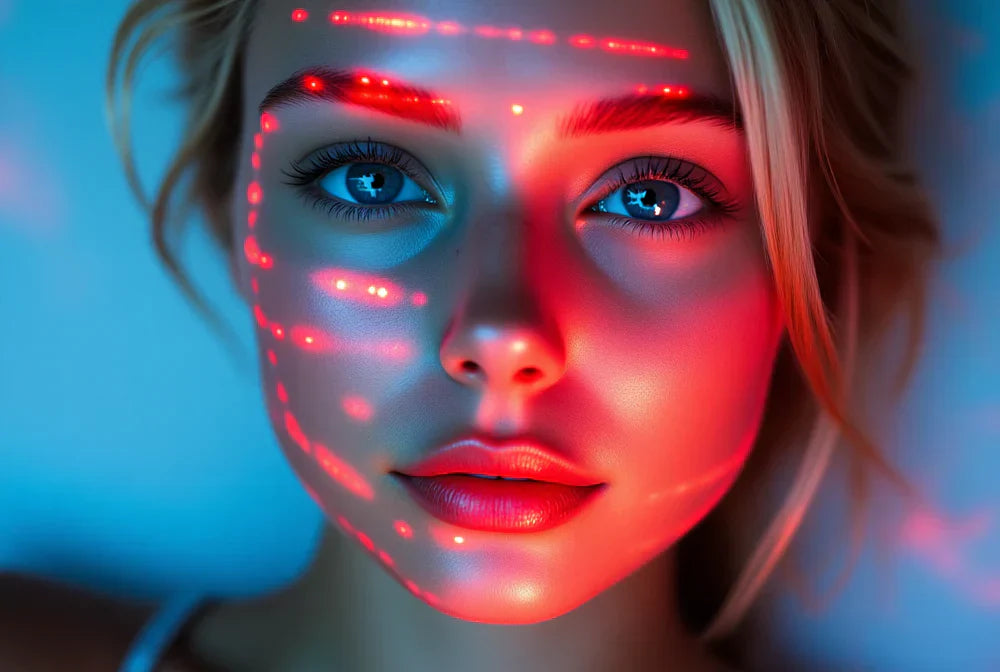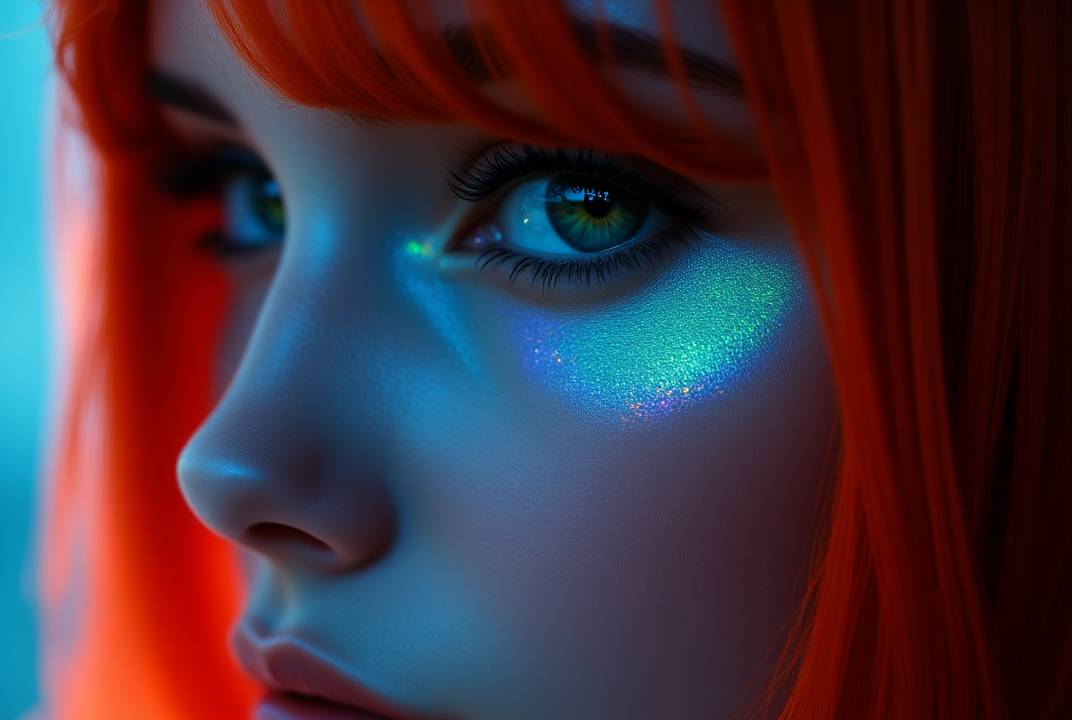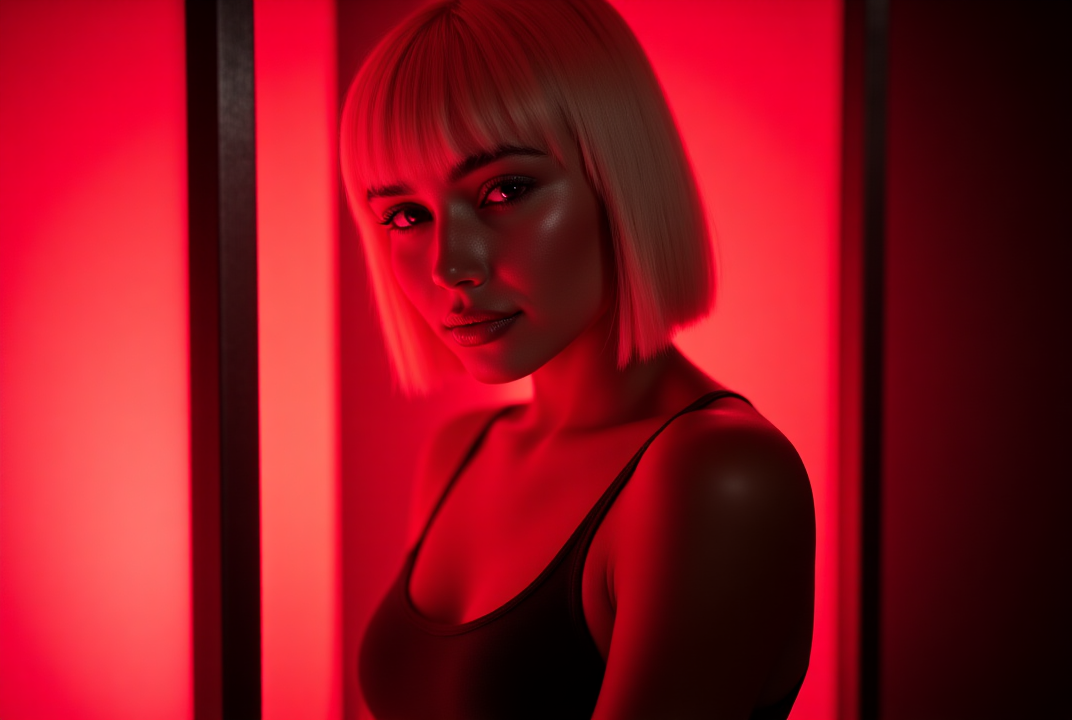As we navigate the complexities of modern technology, the impact of artificial blue light on our health has become a pressing concern. From disrupted sleep patterns to increased eye strain, the effects are far-reaching. This article explores the distinctions between blue light filters and glasses, providing a comprehensive guide for digital professionals, students, and wellness enthusiasts seeking to mitigate these challenges. Discover how these tools can empower you to maintain a balanced lifestyle while embracing the digital world with confidence.
What Are Blue Light Filters?
Blue light filters are innovative solutions designed to reduce the amount of blue light emitted from digital screens, such as those on laptops, tablets, and smartphones. These filters can be implemented as screen protectors, software applications, or built-in features within devices, and they work by altering the color temperature of the display to minimize blue light exposure. By reducing the intensity of blue light, these filters aim to alleviate digital eye strain, enhance visual comfort, and support better sleep quality by preventing the disruption of melatonin production. Ideal for digital professionals, students, and tech enthusiasts, blue light filters offer a practical approach to maintaining eye health and well-being in our screen-centric world.
What Are Blue Light Glasses?
Blue light glasses are specially designed eyewear that filters out or blocks a significant portion of blue light emitted from digital screens and artificial lighting. These glasses are equipped with lenses that have a special coating to reduce glare and prevent blue light from reaching the eyes, thereby minimizing digital eye strain and fatigue. By optimizing melatonin secretion, blue light glasses can also enhance sleep quality, making them particularly beneficial for those who spend extended hours in front of screens, such as digital professionals, gamers, and students. Available in a variety of styles for both day and night use, these glasses offer a stylish and effective solution for protecting eye health and maintaining overall well-being in a technology-driven environment.
Blue Light Filters vs Glasses: What’s The Difference?
Blue Light Filters
- Implementation: Blue light filters can be integrated as screen protectors, software applications, or built-in device features.
- Functionality: They work by adjusting the color temperature of the display, reducing blue light emission to alleviate eye strain.
- Convenience: Filters are easy to apply and can be used across multiple devices, offering a straightforward solution for reducing blue light exposure.
- Limitations: While effective in reducing screen glare, filters may not block all blue light frequencies, particularly during nighttime use.
Blue Light Glasses
- Design: These glasses feature lenses with a special coating that blocks or filters blue light, reducing glare and eye strain.
- Versatility: Available in various styles for both daytime and nighttime use, they cater to different needs, such as enhancing alertness during the day and preserving melatonin at night.
- Portability: Unlike filters, glasses can be worn anywhere, providing consistent protection from blue light across all environments.
- Effectiveness: Blue light glasses are particularly effective in blocking a broader range of blue light frequencies, including those that disrupt sleep patterns.
Key Differences
- Scope of Protection: Glasses offer more comprehensive protection by blocking a wider spectrum of blue light, including green light, which is crucial for nighttime use.
- Application: Filters are device-specific, while glasses provide universal protection regardless of the screen or light source.
- Lifestyle Integration: Glasses can be seamlessly integrated into daily routines, offering a stylish and practical solution for those constantly on the move.
Do Normal Glasses Block Blue Light?
Normal glasses do not block blue light unless they are specifically designed with a blue light filtering coating. Standard prescription or reading glasses are primarily focused on correcting vision issues such as nearsightedness, farsightedness, or astigmatism, and do not inherently include features to filter out blue light. However, many eyewear manufacturers now offer the option to add a blue light blocking coating to regular lenses. This coating helps reduce glare and blue light exposure, providing additional protection for those who spend significant time in front of digital screens. For individuals concerned about digital eye strain and sleep disruptions, opting for lenses with a blue light filter can be a beneficial enhancement to their regular eyewear.
Are Blue Light Glasses a Better Option For Those Who Work Long Hours On Screens?
Blue light glasses are often considered a superior option for individuals who work long hours on screens due to their ability to provide consistent and comprehensive protection against blue light exposure. Unlike screen filters, which are device-specific, blue light glasses can be worn across all environments, offering uninterrupted protection whether you're using a computer, smartphone, or tablet. These glasses are designed to reduce digital eye strain, minimize glare, and enhance visual comfort, making them particularly beneficial for digital professionals, gamers, and students who spend extended periods in front of screens. Additionally, by optimizing melatonin production, blue light glasses can help improve sleep quality, addressing one of the key concerns associated with prolonged screen time. Their versatility and effectiveness make them a practical and stylish solution for maintaining eye health and overall well-being in a screen-dominated world.
Which Are Better For Digital Eyestrain?
Blue light glasses are widely recognized as a superior choice for mitigating digital eyestrain compared to screen filters. These glasses are engineered to block a substantial amount of blue light from digital screens, thereby reducing glare and improving visual comfort. By filtering a wider range of blue light wavelengths, particularly those linked to eyestrain and fatigue, they offer extensive protection that transcends individual devices. This makes them especially beneficial for users who transition between various screens throughout the day. Moreover, blue light glasses can be worn in any environment, providing consistent relief from digital eyestrain whether at work, home, or on the move. Their capacity to enhance visual clarity and alleviate discomfort makes them an excellent option for those looking to safeguard their eyes in a technology-driven world.
Should I Use Blue Light Glasses For All Digital Devices?
Using blue light glasses for all digital devices is a prudent choice for those who spend significant time in front of screens, as these glasses offer consistent protection against the harmful effects of blue light across various platforms. Whether you're working on a laptop, scrolling through a smartphone, or gaming on a high-refresh-rate monitor, blue light glasses can help reduce digital eye strain, minimize glare, and enhance visual comfort. By filtering out a broad spectrum of blue light, these glasses support better eye health and can contribute to improved sleep quality by preserving melatonin production, especially when used during evening hours. Their versatility and ease of use make them an ideal solution for maintaining eye wellness in a technology-driven lifestyle, providing peace of mind for digital professionals, students, and tech enthusiasts alike.
What To Look For When Buying Blue Light Blocking Glasses
- 100% Blue Light Blocking Capability: Prioritize glasses that offer complete blue light blocking in the evening range (400-570nm), including green light, to ensure optimal protection and melatonin preservation during nighttime use.
- Comfort and Durability: Look for glasses that are designed for long-term wear, featuring lightweight materials and ergonomic designs that provide comfort without compromising on durability.
- Stylish Designs: Choose glasses that offer versatile styles suitable for both professional and casual settings, appealing to those who value aesthetics alongside functionality.
- Lens Quality: Ensure the lenses are of high quality, providing clear vision without distortion, and effectively reducing glare to enhance visual comfort.
- Fit and Adjustability: Opt for glasses that offer a customizable fit, with adjustable nose pads and flexible frames to accommodate different face shapes and sizes comfortably.
Conclusion
In conclusion, navigating the digital landscape requires thoughtful consideration of how we protect our eyes from the pervasive effects of blue light. Whether through the use of blue light filters or glasses, each solution offers unique benefits tailored to different needs and lifestyles. Blue light glasses, with their comprehensive protection and versatility, stand out as a particularly effective option for those who spend extended hours in front of screens. By investing in high-quality blue light blocking solutions, individuals can significantly reduce digital eye strain, enhance sleep quality, and maintain overall eye health. As we continue to embrace technology in our daily lives, making informed choices about eye protection becomes essential, empowering us to thrive in a digital world with confidence and clarity.
Final Thoughts
Are you ready to enhance your digital experience while safeguarding your eyes? Explore the innovative solutions at EMR-TEK, where products seamlessly integrate into your lifestyle. Whether you're seeking a portable device for convenience on the go or a comprehensive system for home or professional use, EMR-TEK has the perfect solution. Their expertly crafted blue light glasses are designed to reduce eye strain and protect your vision, making them an essential addition to your wellness routine. Discover our range of red light therapy products and start your journey to healthier, more radiant skin today.
Sources
Disclaimer:* EMR-TEK’s red infrared light therapy devices, blue light blocking glasses, and other products are intended solely for personal wellness and fitness use. They are not designed to diagnose, treat, cure, or prevent any disease and should not be considered medical devices. We do not make any therapeutic claims. Our products align with the FDA’s “General Wellness: Policy on Low Risk Devices” guidelines and do not require FDA clearance. Please note, EMR-TEK’s products are for personal use only and not for commercial application.*




Share:
How To Get Rid Of Blue Light Headache: Step-by-Step
What Is Blue Light: Blue Light 101